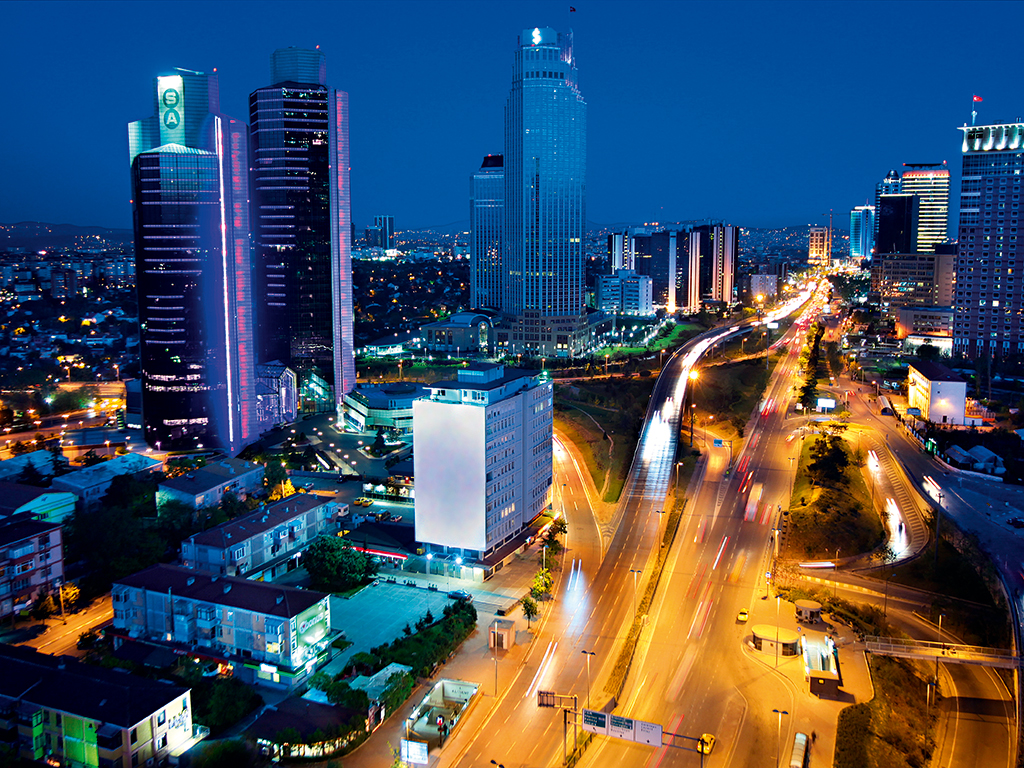Turkey’s economy prospers as foreign direct investment grows
The Investment Support and Promotion Agency of Turkey runs us through the country’s success in attracting foreign direct investment in 2013

With inflows coming in from countries including Japan, Russia and Malaysia, Turkey's foreign direct investment performance has boosted its economy, and impressed outsiders
Turkey’s FDI performance in 2013 was reassuringly fine; according to year-end provisional data, the country attracted $12.9bn of FDI in 2013. Although the final figures have not been released yet, the amount is expected to be above that of 2012. Looking at provisional figures, 20 percent of the current account deficit was financed through FDI in 2013.
On a country basis, Germany was the largest investor in Turkey in 2013, followed by the Netherlands, Russia, Azerbaijan and Austria. With respect to the sectorial breakdown, the most attractive sector in 2013 was financial services, with over $3.7bn, followed by energy and manufacturing with $2.5bn and $2bn respectively.
$12.9bn
FDI in Turkey, 2013
Moreover, a geographical breakdown shows Turkey continues to diversify the sources of FDI inflows: it is attracting investments from new sources such as India, Japan, Russia, Malaysia and the Gulf countries, as well as the US. The EU share decreased from 68 percent to 52 percent, while Asia’s share soared to 31 percent, up from 22 percent. However, with the economic recovery, the EU may again increase its share in 2014 and 2015.
Turkey in competition
As is well known, in parallel with globalisation, many countries are in fierce competition to attract more high value-added, technology-intensive and greenfield investments. In terms of greenfield investments, Turkey is among the top 20 FDI recipient countries, with $9.5bn worth of projects announced last year. Turkey enjoyed an eight percent increase in greenfield investments and this made Turkey the 19th most attractive investment destination for greenfield investments.
The Investment Support and Promotion Agency of Turkey (ISPAT) continues to support high value-added greenfield investments in Turkey. Turkey’s favourable investment climate has recently attracted many prominent multinational companies to the country.
3M is investing $500m in Turkey. The investment project is incorporating sophisticated technology and creating highly-qualified employment for a workforce of more than 1,000 people.
India-based global giant, Aditya Birla Group is investing $510m in Turkey’s Adana region for the production of ‘viscose staple’ fibre, a material that is currently not produced in Turkey. The investment project is slated for completion over the next five years, while 20 percent of the facility’s production will be allocated for exports.
Dow Chemicals formed a joint venture with Turkey’s Aksa Akrilik Kimya Sanayii, part of the Akkök Group (a Turkish conglomerate). This investment is expected to offer integrated carbon fibre composite solutions to the growing global energy, transportation and infrastructure markets. The total amount of investment in the project, including third-party investments, is expected to reach $1bn in five years and create 1,000 employment opportunities.
Sumitomo Rubber Industries, the first local tyre producer in Japan, formed a joint venture with Abdülkadir Özcan Automotive Tyres, investing around $500m in the Central Anatolian province of Çankırı. Sumitomo currently has eight tyre production facilities globally: four in Japan and another four in the rest of Asia. The facility in Çankırı stands out as the group’s first production facility in the region.
Italy’s Recordati, a leading name in the European pharmaceuticals industry with a wide range of medicinal products, announced a manufacturing investment of $50m in Turkey. The plant, to be built in Cerkezkoy Organised Industrial Zone, located in Tekirdag Province in northwestern Turkey, will supply drugs for various therapeutic uses, at a rate of 80 million packs a year, creating 130 new jobs.
Future growth
While ISPAT continues to promote Turkey’s investment opportunities, more will emerge with the realisation of Turkey’s ambitious targets for 2023, the centennial celebration of the foundation of the Republic of Turkey. The government has set specific targets to achieve by 2023, ranging from healthcare to the economy, from defence to education, and from energy to transportation. These targets include becoming one of the top 10 economies in the world, with a GDP of $2trn, and increasing export revenues to $500bn.
With its favourable investment environment, Turkey continues to be a safe harbour for international investors in the region, and the rise of greenfield investments is a good indicator of the investors’ high confidence in the future of the Turkish economy. High value-added, technology-intensive and greenfield projects were on the rise in 2013 and this trend is expected to continue in the future.
For further information visit www.invest.gov.tr













